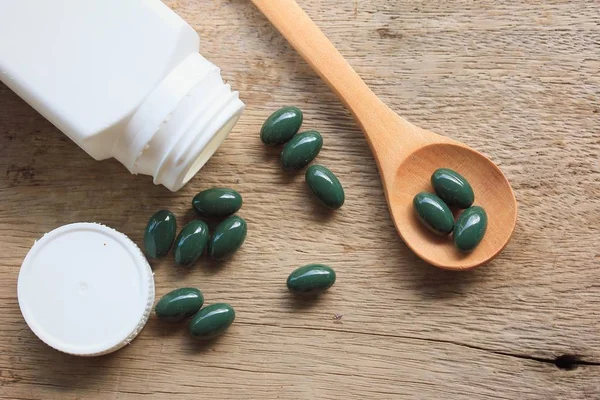Can Cinnamon supplements reduce blood glucose in prediabetics? Cinnamon supplements have been found to reduce blood glucose levels in prediabetic individuals. A 12-week study published in The American Journal of Clinical Nutrition showed that daily cinnamon supplements significantly lowered blood glucose levels in obese and overweight prediabetic participants.
Additionally, research has indicated that cinnamon may help support blood sugar management by increasing insulin sensitivity, decreasing blood sugar levels after eating, and reducing the risk of diabetes-related complications.
However, despite these findings, the effectiveness of cinnamon in lowering blood sugar is still a topic of debate, and more studies are needed to confirm its benefits[1].

Study Finding
Research on cinnamon and its potential benefits for blood sugar control has been ongoing for some time, and it’s promising to see new findings in the area of prediabetes.
Some studies have shown that cinnamon supplements may help reduce blood glucose levels in people with prediabetes. This is encouraging news, as prediabetes is a condition where blood sugar levels are higher than normal but not yet high enough for a diagnosis of type 2 diabetes. Reducing blood sugar levels can help prevent the progression to type 2 diabetes and its associated complications.
- A total of 19 participants were enrolled in the study, with 18 completing the study.
- The participants were predominantly female (68.42%) with an average age of 51.1 years and weight of 84.6 kg/m2.
- Continuous glucose monitoring revealed a significant reduction in peak glucose values in the cinnamon group compared to the placebo group.
- The area under the curve (AUC) from the OGTT test also showed a significant increase in the cinnamon group by the end of the study.
- Capsule adherence was high and similar in both groups, and no adverse events were reported.
These findings suggest that cinnamon supplementation may be effective in reducing blood sugar levels in individuals with prediabetes. However, more research is needed to confirm these findings and to determine the long-term safety and efficacy of cinnamon for this purpose.
| Finding | Cinnamon Group | Placebo Group |
|---|---|---|
| Participants | 18 | 18 |
| Females (%) | 68.42 | 68.42 |
| Mean Age (years) | 51.10 | 51.10 |
| Mean Weight (kg/m2) | 84.60 | 84.60 |
| Peak Glucose Reduction (mg/dL) | -9.56 | -11.73 |
| AUC Baseline | 31885.1 | 31885.1 |
| AUC End | 43592.9 | 43592.9 |
| Capsule Adherence (%) | 97.6 | 97.9 |
| Adverse Events | None | None |
However, it’s important to note that the research on cinnamon is still ongoing, and more studies are needed to confirm its effectiveness and long-term safety. Some studies have shown mixed results, while others have raised concerns about the potential side effects of high doses of cinnamon.
Therefore, it’s not recommended to rely solely on cinnamon supplements to manage prediabetes. If you have prediabetes, it’s important to work with your doctor to develop a comprehensive treatment plan that may include lifestyle changes, such as a healthy diet and regular exercise, along with medication if needed.
Are there any potential side effects of taking cinnamon supplements for prediabetes management?
Taking cinnamon supplements for prediabetes management can have several potential side effects, which vary depending on the type of cinnamon used and the dosage. It’s important to consider these factors when deciding whether to incorporate cinnamon into your diet or supplement routine.
Irritation and Allergies
- Cinnamon is generally safe for most people, but heavy use or consumption of large amounts can lead to irritation of the mouth and lips, causing sores. Some individuals may also experience allergic reactions, which can manifest as redness and irritation if cinnamon is applied to the skin.
Toxicity
- Consuming large amounts of cassia cinnamon, which is high in coumarin, can be toxic, especially for individuals with liver problems. Coumarin is an ingredient in some cinnamon products and can cause liver damage. However, the amount of coumarin typically found in cinnamon supplements is generally considered safe for most people. It’s important to note that there is a lack of evidence regarding the long-term safety of cinnamon supplements, particularly for children, pregnant women, and breastfeeding women. Therefore, these groups should exercise caution and consult with a healthcare professional before using cinnamon as a treatment.
Lower Blood Sugar
- Cinnamon may affect blood sugar levels, which could necessitate adjustments in treatment for individuals with diabetes. This effect is particularly relevant for those managing prediabetes, as cinnamon has been shown to help lower blood glucose levels.
Interactions
- Cinnamon supplements could interact with various medications, including antibiotics, diabetes drugs, blood thinners, and heart medicines. It’s crucial to consult with a healthcare provider before starting cinnamon supplements if you’re currently taking any medications to ensure there are no adverse interactions.
Dosage Considerations
- The appropriate dosage of cinnamon supplements can vary, but some experts suggest 1/2 to 1 teaspoon (2-4 grams) of powder per day. High doses might be toxic, and it’s not advisable to consume large amounts of cinnamon. The type of cinnamon also matters; cassia cinnamon is high in coumarin and should be used with caution, while Ceylon cinnamon contains lower amounts of coumarin and is generally considered safer.
In summary, while cinnamon supplements can offer benefits for prediabetes management, including potential reductions in blood glucose levels, they also come with potential side effects and risks. These include irritation, allergies, toxicity, interactions with medications, and the potential to lower blood sugar levels. It’s essential to use cinnamon responsibly, choosing the right type and dosage, and consulting with a healthcare professional, especially for those with existing health conditions or those taking medications.
Things to keep in mind
The type of cinnamon matters. Ceylon cinnamon is generally considered to be safer than cassia cinnamon, as it contains lower levels of coumarin, a compound that can be harmful in high doses.
The dosage of cinnamon is important. Most studies have used doses ranging from 1 to 6 grams per day. However, it’s best to talk to your doctor about the appropriate dosage for you.
Cinnamon supplements can interact with certain medications. Be sure to tell your doctor about all the medications and supplements you are taking before starting cinnamon supplements.
Don’t Miss | Can Snoring Increase Stroke Risk In Adults? Here’s What Experts Want You To Know









